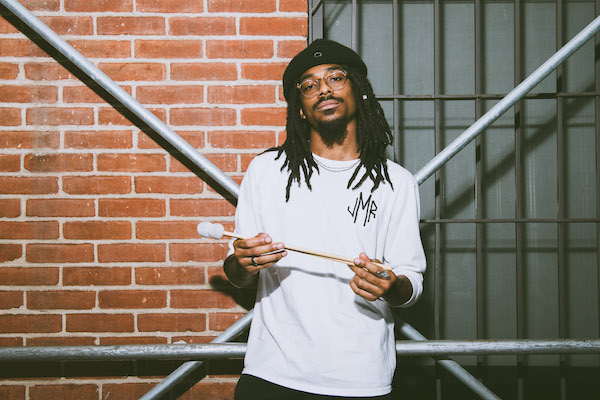Jan 13, 2026 2:09 PM
More Trump-Kennedy Center Cancellations
The fallout from the renaming of the John F. Kennedy Center for the Performing Arts to include President Donald…

Joel Ross is among the 25 artists DownBeat thinks will help shape jazz in the decades to come.
(Photo: Lauren Desberg)Four years after moving to New York to study music, Joel Ross—already a veteran sideman—released his leader debut, KingMaker (Blue Note). The 2019 disc earned rave reviews, heralding the arrival of a vibraphonist who was also a conceptualist.
So, how is the 25-year-old Chicago native capitalizing on the buzz? By releasing a follow-up album and, well, going back to school. Even as Who Are You? (Blue Note) was released in October, Ross returned to The New School to finish his bachelor’s degree.
“I don’t like to do the obvious thing,” he said.
His decision as a youth to join the relatively small fraternity of vibraphonists came, he said, after his brother proved to be the better drummer. But it satisfied a creative urge to combine the characteristics of his favorite instruments—the drums and piano.
“The vibraphone is the best outlet to play a percussive instrument and express myself harmonically and theoretically,” he said.
As a bandleader, his guiding lights often have been trumpeters, including Miles Davis, Marquis Hill and Ambrose Akinmusire. Their willingness to grant their bandmates autonomy has proved a model.
“I don’t give my band much direction,” Ross explained. “Just bring the music. Be completely honest. Search for something higher.”
According to alto saxophonist Immanuel Wilkins, a member of Ross’ quintet, Good Vibes, the leader seems determined to explore new sonic territory with his instrument: “He may have changed the vibes’ role within the comping realm. He’s developed a language where he’s able to play in between other people’s solos, with some landmarks, without normal comping chords—a motif way of comping.”
Ross, in fact, plays down traditional notions of accompanist and soloist, speaking instead of a joint effort to “craft a sort of long-form song.”
In January, Ross is scheduled to arrange a piece or two for the Danish Radio Big Band. His experience with ensembles of that size is limited, he said, motivating his return to school, where he will study arranging. He plans to use this new knowledge to avoid the obvious.
“I want to look into big band and orchestra writing, so that I can understand how it works,” he said, “so that I can break away from it.”
This story originally was published in the November 2020 issue of DownBeat. Subscribe here.

Belá Fleck during an interview with Fredrika Whitfield on CNN.
Jan 13, 2026 2:09 PM
The fallout from the renaming of the John F. Kennedy Center for the Performing Arts to include President Donald…

Peplowski first came to prominence in legacy swing bands, including the final iteration of the Benny Goodman Orchestra, before beginning a solo career in the late 1980s.
Feb 3, 2026 12:10 AM
Ken Peplowski, a clarinetist and tenor saxophonist who straddled the worlds of traditional and modern jazz, died Feb. 2…

The success of Oregon’s first album, 1971’s Music Of Another Present Era, allowed Towner to establish a solo career.
Jan 19, 2026 5:02 PM
Ralph Towner, a guitarist and composer who blended multiple genres, including jazz — and throughout them all remained…

Rico’s Anti-Microbial Instrument Swab
Jan 19, 2026 2:48 PM
With this year’s NAMM Show right around the corner, we can look forward to plenty of new and innovative instruments…

Richie Beirach was particularly renowned for his approach to chromatic harmony, which he used to improvise reharmonizations of originals and standards.
Jan 27, 2026 11:19 AM
Richie Beirach, a pianist and composer who channeled a knowledge of modern classical music into his jazz practice,…